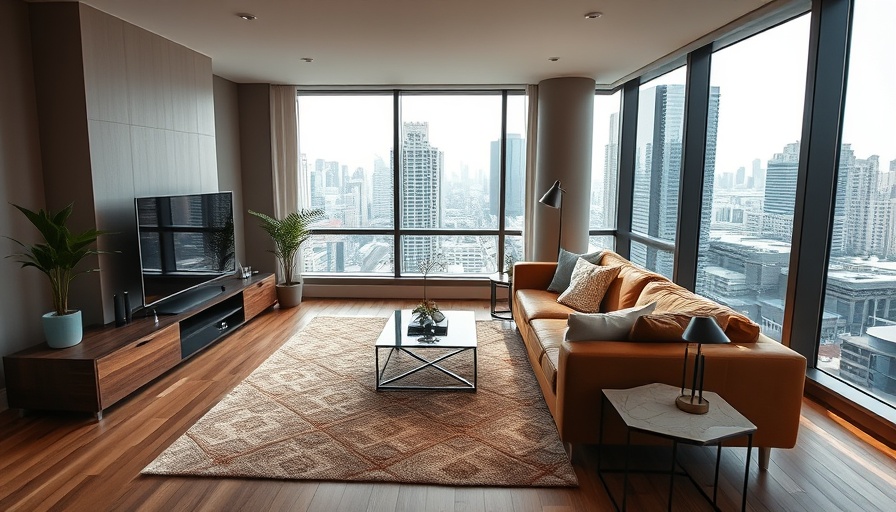
Your Basement: Your Sanctuary from City Noise
In the hustle and bustle of Brooklyn, creating a tranquil retreat in your basement can transform your home into an oasis of calm. Whether it's for relaxation, work, or entertaining, soundproofing is essential to keeping unwanted city noise at bay. This guide dives into practical DIY techniques for soundproofing your basement, ensuring you can enjoy peace and quiet even amidst the city's constant activity.
Understanding Sound: What You Need to Know
A brief overview of soundproofing reveals the two main categories: airborne and impact noises. Airborne noises come from things like conversation or music, while impact noises are caused by footsteps or vibrations. A successful soundproofing strategy addresses both types, allowing you to customize your approach based on how you plan to use your basement space.
Materials That Can Make a Difference
When it comes to DIY soundproofing, the choice of materials plays a significant role. Here are some effective options:
- Acoustic Panels: These soft panels absorb sound waves and are available in various colors and designs to complement your space.
- Soundproof Drywall: Adding an extra layer of soundproof drywall can significantly reduce noise transfer between your basement and the rest of your home.
- Mass Loaded Vinyl (MLV): This heavy material blocks sound and can be easily added between existing walls or flooring.
DIY Techniques for Effective Soundproofing
Implementing soundproofing techniques can be straightforward. Here are practical steps to get started:
- Sealing Gaps: Use caulk or acoustic sealant to fill gaps and cracks in the walls, floors, and ceiling where sound might leak.
- Floating Floors: Installing a floating floor with a sound-dampening layer can significantly reduce noise from above.
- Rugs and Carpets: These can absorb sound and make your basement feel cozy, while also providing an appealing design element.
Consider Lighting and Insulation Upgrades for a Complete Space
While soundproofing is critical, improving lighting and insulation can enhance the overall environment of your basement. Consider installing dimmable LED lights that not only save energy but also allow you to set the mood for different activities.
Proper insulation will regulate temperature and prevent noise from outside, making your basement both comfortable and quiet all year. Take a moment to explore eco-friendly insulation options that align with your sustainability goals.
Emotions Behind Enhancing Your Personal Space
Transforming your basement into a soundproof sanctuary is more than just a home improvement project; it’s an emotional journey. Think about the peace that comes from having a specialized space for hobbies, relaxation, or family gatherings. A soundproof basement can help foster connections, provide solace, and even increase productivity for those working from home.
Common Misconceptions About Soundproofing
Soundproofing can be daunting due to myths that only professionals can execute it effectively. Many homeowners believe they need an expensive, full renovation to achieve decent soundproofing. In reality, with the right materials and approaches, DIY solutions can work remarkably well to reduce noise.
Final Thoughts: Empowering Your Home Improvement Journey
By applying these soundproofing techniques, you can create a peaceful retreat in your Brooklyn basement. The journey toward tranquility doesn’t have to be complicated or costly. With a mix of creativity, the right materials, and a willingness to explore DIY solutions, anyone can elevate their basement into a quiet refuge.
Ready to start your soundproofing journey? Explore your options today and enjoy the peace of mind that comes with a well-designed basement!
 Add Row
Add Row  Add
Add 




Write A Comment